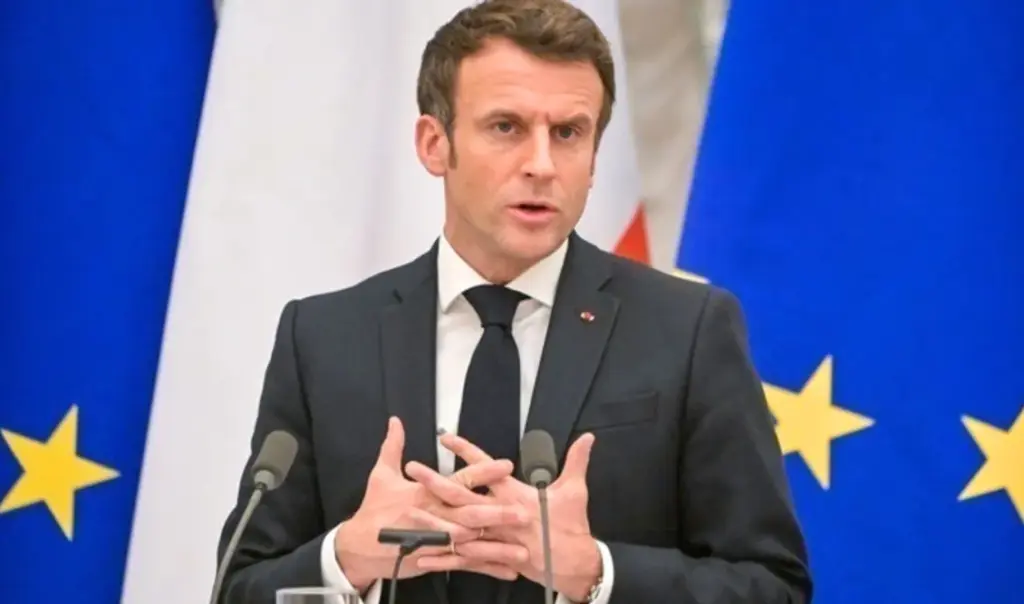In a move that clearly aims to put Paris back at the center of diplomatic processes, Emmanuel Macron surprisingly announced that France will recognize a Palestinian state in September, during the UN General Assembly session. This decision marks the first recognition of a Palestinian state by a G7 member state, while signaling the maintenance of a consistent line in French foreign policy.
This comes as it is recalled that France was set to co-chair with Saudi Arabia an international conference of heads of state and government aimed at reviving the so-called “two-state solution” for Palestine and Israel. This conference, originally scheduled for June, was postponed at the last minute due to the war between Israel and Iran, while the joint initiative with Riyadh fully explains why Saudi Arabia immediately welcomed the “historic” decision announced by the Elysée Palace resident.
900,000 children starving in Gaza – France’s decision on Palestine, in the aftermath of ceasefire “failure”
It should be noted that the diplomatic “thermometer” is at its peak in the aftermath of the humanitarian tragedy and calls to immediately address the famine threat facing the enclave’s residents, highlighted by both the United Nations and WHO, as well as major international media (notably, within just three days this week, public health officials recorded 43 deaths from starvation – before this there had been a total of 68 deaths, while Gaza’s health ministry reported that 900,000 children are starving, with 70,000 showing symptoms of malnutrition). Thus, an “emergency meeting” of France, Britain and Germany on the situation in the Gaza Strip is scheduled for today, noted British Prime Minister Keir Starmer, reaffirming the “inalienable right of the Palestinian people” to achieve an independent state, indicating that both Paris and Berlin may follow suit.
This development comes against the backdrop of deadlock in ceasefire negotiations in Gaza, with Steve Witkoff, Donald Trump’s Middle East envoy, blaming Hamas and accusing it of “lack of will.” It is noted that the United States is withdrawing its negotiating team from Doha, with Witkoff noting that the US and its partners will “now consider other options to return hostages to their homes” and “create a more stable environment for Gaza’s population,” without being more specific about these “options.”
To date, 147 countries have recognized the Palestinian state. Last May, Ireland, Norway and Spain joined the twelve European countries that recognize Palestine, followed by Slovenia in June 2024. France apparently hopes to create a “wave” that will bring the “two-state” solution back to the forefront, though it should not be forgotten that this decision has a clear declaratory character (not legally binding), while sources cited by CNN suggest that Paris’s move does not mean acceptance of the two states’ borders as delineated based on UN resolutions in 1967.
The clear rift with US and Israel, Mélenchon’s praise and Bardella’s negative stance
Emmanuel Macron’s announcement received fierce criticism from both the United States and Israel, as Washington and Tel Aviv always remain aligned in the broader geopolitical chessboard of the Middle East. Marco Rubio stated in a post on X that “this ill-considered decision serves only Hamas propaganda and is a setback for the peace (process). It is a slap in the face to the victims of October 7th” 2023.
For his part, Benjamin Netanyahu, in his angry reaction, stated that “recognizing a Palestinian state rewards terrorism.” Macron and Netanyahu have not been on the same page for a long time, with CNN recalling that France, although initially siding with Israel in the aftermath of the Hamas attack, changed its stance, calling in October 2024 for arms sales to Israel to stop, given the ongoing humanitarian tragedy in Gaza.
At the domestic level, Jean-Luc Mélenchon’s reaction appears expected, with the leader of the leftist “Unsubmissive France” speaking of a “moral victory” and calling for an end to the “genocide.” In contrast, Jordan Bardella, leader of the far-right “National Rally,” believes that Macron’s decision grants “unexpected international and institutional legitimization to Hamas,” speaking of a “hasty decision” motivated by the desire to gain “personal political advantages” rather than seeking “justice” and a peaceful solution for the region.




